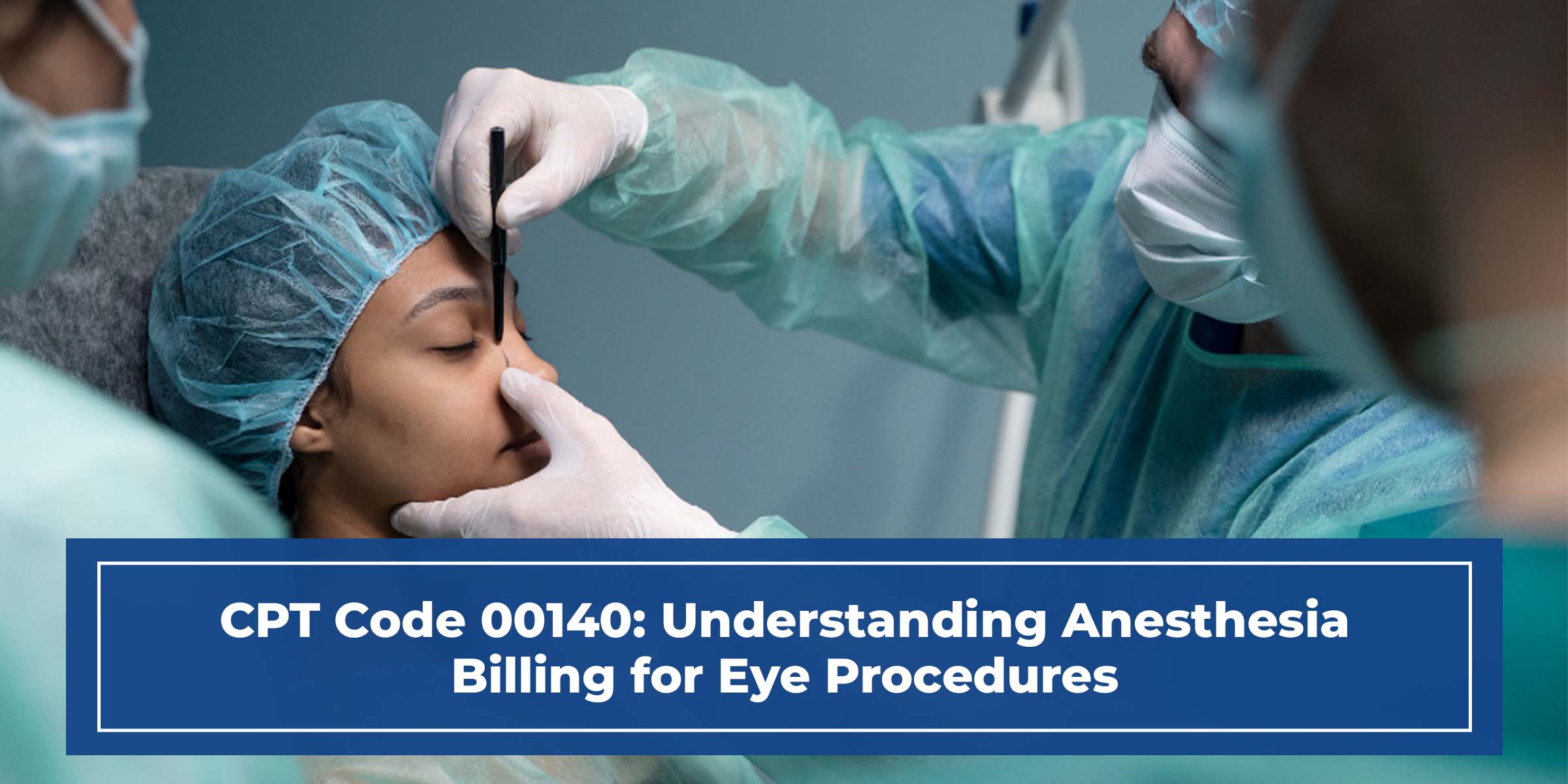Have you received a denial stating that the procedure code is inconsistent with the modifier used? If so, you’re not alone. In 2023, the Centers for Medicare & Medicaid Services (CMS) reported that modifier-related coding errors affected over 13% of all claim denials tied to CPT/HCPCS mismatches. CO 4 Denial Code is a common reason claims are returned unpaid, often due to a missing or incorrect modifier, even when the service was performed and documented.
Improper use of modifiers ranks among the top five reasons for outpatient claim denials. According to 2024 AMA audit data, 18% of claims using modifier 25 or 59 were either denied or downcoded due to application errors or lack of documentation. These errors waste time, delay payments, and trigger payer scrutiny.
This article provides practical, expert-level guidance on how to handle CO4 denials. This helps you to understand causes, correction steps, and prevention methods, all written for Medical Coders, Billers, Insurance Specialists, and Revenue Cycle Managers looking to avoid repeat denials and improve claim accuracy.
Understanding the CO 4 Denial Code
This section defines the CO 4 Denial Code and discusses why it is commonly used on claims presented by billing teams.
What Is the CO 4 Denial Code?
The CO 4 Denial Code indicates that the method code conflicts with the modifier applied, or that a needed modifier is missing. It belongs to the Claim Adjustment Reason Code (CARC) category and indicates an issue with code-to-modifier logic during claim processing.
Modifiers are two-character codes added to CPT or HCPCS codes to describe the service offered. When certain modifiers are incorrectly chosen, removed, or misaligned with the method, the payer refuses the claim. This is often referred to as a soft rejection, which means that the problem may be resolved and the claim resubmitted for payment.
Common modifier errors include the incorrect usage of 25, 59, LT, RT, or 50. These mistakes can be caused by coding staff members, EHR templates, or software that wrongly applies updates. Regardless of the cause, the refusal must be corrected shortly with payer-specific standards.
Why Medical Coders and Billers See CO 4 Often
Medical coders and billers commonly encounter CO 4 due to uneven coding procedures among providers, insufficient paperwork, or out-of-date billing information. This refusal is common in outpatient care, DME billing, and surgical specialties, particularly where modifiers are necessary to distinguish between different treatments or physical sides.
Modifier 59 is frequently misused to avoid edit conflicts. Modifier 25 is used without supporting notes. In high-volume practices, minor programming mistakes like this add up rapidly.
A 2024 payer audit revealed that more than 17% of claims with modifiers 25 and 59 were refused or recommended for further assessment. These examples show that the CO 4 Denial Code can be avoided by appropriately assigning modifiers and giving more detailed source descriptions.
Common Causes Behind CO 4 Denials
This section discusses the specific coding, billing, and documentation errors that usually result in the CO 4 Denial Code.
Modifier Not Appropriate for the Code
One of the most common causes of this denial is a mismatch between the CPT or HCPCS code and the modifier used. Using a CPT Category I procedure code with a Category II performance modifier, such as billing 00222-3P instead of 00222-AA, results in refusal. Payers reject these claims because the modifier does not apply to the service provided.
Some commercial payers also impose their modification limits. If a modifier is not in a code’s allowed combination list, the claim will be refused, even if it passes internal tests.
Missing Required Modifiers
Certain procedures require the use of modifiers to indicate service details, such as laterality (RT/LT), repeat procedures (76), or separate procedural services (59). Omitting them when necessary results in the CO 4 Denial Code.
For example, billing 11730 for nail avulsion on both feet without the 50 modifier (bilateral procedure) could cause one line to be refused if modifiers LT/RT were utilized inconsistently. Some payers accept modifier 50, while others require two lines including LT and RT. Understanding these conditions is crucial.
Errors in Competitive Bidding Program Claims
Durable Medical Equipment (DME) claims in Competitive Bid Areas (CBAs) sometimes require modifiers such as KU, KE, or KL. Billing without these modifications, or with the incorrect one, will result in a CO 4 rejection. The problem is the most common one with DMEPOS claims submitted to Medicare.
CMS further requires vendors to sign a contract to participate in competitive bidding. If an incorrect modifier is used or if a provider invoices without appropriate registration, the claim is refused, no matter the service provided.
How to Fix CO 4 Denial
This section describes a step-by-step method for correcting a CO 4 Denial Code and ensuring that resubmitted claims fulfill payer standards.
Step-by-Step Resolution Process
- Check the Explanation of Benefits (EOB) or Remittance Advice (RA) for CO4.
- Determine the CPT or HCPCS code and the modifier applied.
- Analyze all records to ensure that the modification was necessary and properly implemented.
- Refer to the payer’s coding rules, particularly for modifiers 25, 59, 76, 91, RT/LT, and 50.
- Correct the claim by adding the proper modifiers or removing those that were used in mistake.
- Resubmit the claim online or on paper, following payer resubmission rules.
Example: Incorrect Modifier Use
A clinic bills CPT 97140 (manual treatment) on the same day of service as CPT 99213 (established patient E/M). Modifier 59 is applied to 97140; however, the documentation does not explicitly support independent and different functions. The payer refuses 97140 for CO 4.
To fix this:
- Review the chart notes to ensure that the manual therapy was separate from the E/M.
- If properly documented, resubmit with a clearer remark.
- If not needed, eliminate 59 and do not bill for 97140.
Preventing CO 4 Denials
This section provides specific steps your billing and coding teams can use to reduce the likelihood of receiving a CO 4 Denial Code before the claim is submitted.
Use a Pre-Submission Modifier Audit
Perform a coding check before mailing out claims. Confirm that the CPT or HCPCS codes are consistent with the modifiers used. Many billing systems support custom rules and built-in NCCI edit checks. Create alerts for high-risk modifiers such as 25, 59, 50, LT, RT, and 76.
If you’re invoicing for bilateral operations or services that normally need distinct claim lines, double-check the payer’s rules; some want modifier 50, while others need LT/RT on two lines. Avoid presuming that payer rules are uniform.
Train Staff on Modifier Usage
Staff training must include:
- Annual updates to CPT and HCPCS adjustments.
- Clarification on whether modifiers such as 25, 59, 76, and 91 are permitted.
- Examples of proper and inappropriate modifier use.
Maintain Modifier Reference Materials
Create a reference sheet for:
- Common CPT codes used in your practice.
- Commonly accepted modifiers.
- Rules for Medicare, Medicaid, and commercial policies vary per payer.
Conclusion
The CO 4 Denial Code is a typical billing problem associated with improper or missing modifiers. It creates delays, rework, and lost payments if not addressed properly. Consistent training, code audits, and payer-specific checks help to limit the likelihood of mistakes. Coders and billers must confirm modifier requirements before sending claims. Any changes should be supported in the documentation. Fixing this rejection early protects both cash flow and compliance.
FAQs
What does the CO 4 Denial Code mean in medical billing?
The CO 4 Denial Code means the procedure code is inconsistent with the modifier used or a required modifier is missing, leading to claim rejection.
What are the common causes of a CO4 denial?
CO 4 denials typically occur due to incorrect modifier usage, missing modifiers, outdated coding, or documentation that doesn’t support the modifier used.
Can a CO 4 denial be corrected and resubmitted?
Yes, CO 4 is a soft denial. You can correct the modifier or CPT/HCPCS code and resubmit the claim as per the payer’s correction policy.
How can we prevent Co 4 denials?
Prevent CO 4 denials by training staff, auditing claims before submission, staying updated on payer rules, and verifying modifier requirements.
Does documentation affect modifier-related denials CO 4?
Yes, incomplete or unclear documentation can lead to modifier denials. Proper records must support any modifier applied to a CPT or HCPCS code.





